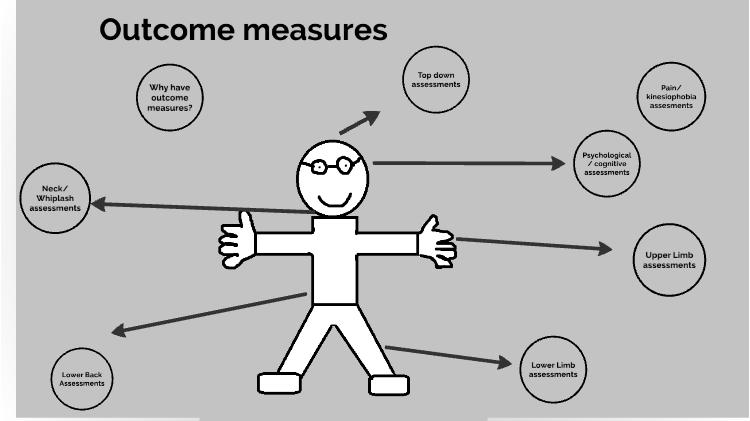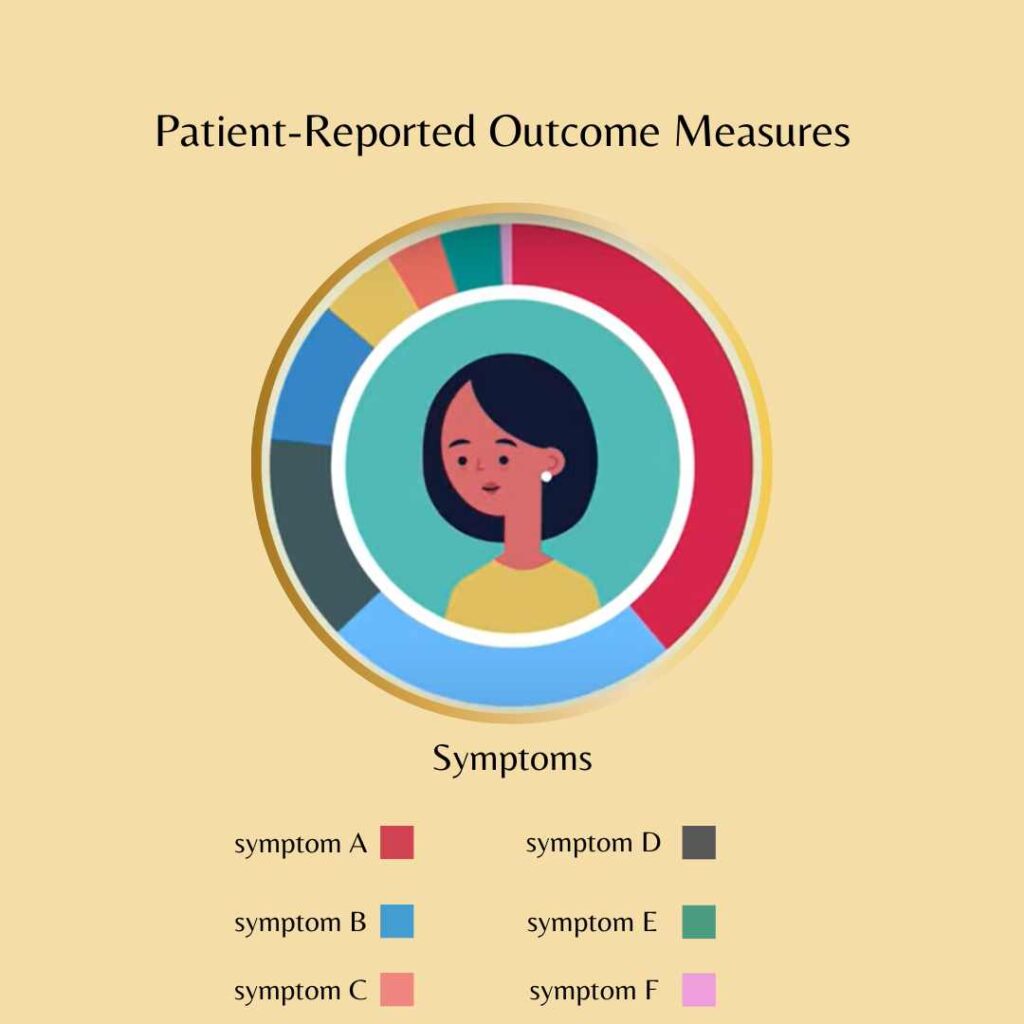Why bother with outcome measures?
When attempting to persuade governments, practitioners from other modalities, and other health system stakeholders of the value and efficacy of our services, it is imperative that we use forms of measurement that have been validated through research when stating results.
Our stakeholders are familiar with these tools, and they accept (and require) them as providing accurate information, which adds weight to any claims we might make.
- An outcome measure is a tool used to assess a client’s current status.
- They can provide a score or an interpretation of results, and at times identify risks for the client.
- They provide a credible and reliable justification for treatment for an individual client.
- Combining data can inform treatments for groups of clients with similar symptoms or complaints.
What are outcome measures all about?
The tools used for measuring outcomes are called Standardised Questionnaires. These questionnaires record clients’ perceived changes to their health status.
Outcome measures used in clinical practice are divided into four categories:
- Self-report measures
- Performance-based measures
- Observer-reported measures
- Clinician-reported measures
Self-reported measures
Self-reported information is gained in the form of Standardised Questionnaires. Although self-report questionnaires may seem subjective, the self-report tools (questionnaires) objectify a patient’s perception.
Questionnaires where the patient reports on health or physical function status are known as Patient-Reported Outcomes (PRO).
Performance-based measures
Performance-based measures require the patient to perform a set of movements or tasks. These measures tend to bring to light physical, biological and/or functional challenges.
Observer-reported measures
Observer-reported measures collect information from a third party, i.e., they are completed by a parent, caregiver or someone who regularly observes the patient (daily, weekly etc).
Clinician-reported measures
Clinician-reported measures collect information that is provided by a health care professional (e.g., therapist, doctor, nurse, occupational therapist, etc.).
The professional uses clinical judgement to report on client behaviours. The tool also captures signs that are observed by the professional.
Why are outcome measures valuable?
- Helps identify meaningful change for our patients
- Helps us measure, record and relate findings or results in an objective way
- Informs quality and value-based care
- Determines what works particularly well for a client or client group with a certain condition or diagnosis
- Demonstrates change (positive or negative), and shows the impact of our services
- Helps us evaluate our treatments and demonstrate their effectiveness
- Provides a framework for professional discussions
- Helps substantiate results and provides an objective record
- Contributes to rigor in research
Examples of tools available for tactile therapies
- Pain measures
- Patient’s impressions of change measure
- Symptom, disability & functional ability measures
- Disability of the arm, shoulder and hand
- Neck disability index
- Low back pain and Disability index
- Patient specific functional measure
Pain measures
Short Form (McGill) Pain Questionnaire
Numeric Rating Scale (NRS)
Patient impressions of change measure
Patients’ Global Impression of Change (PGIC) scale
Symptom disability, and functional ability measures
Disabilities of the Arm, Shoulder & Hand
Neck Disability Index
Roland-Morris Low Back Pain & Disability Questionnaire (RMQ)
OSWESTRY Low Back Disability Questionnaire
Patient specific functional measure
Selecting the best outcome measure
- What do I want to measure?
- How will I measure it?
- Is there a recommended outcome measure for this population or area of practice?
- Is the outcome measure acceptable and meaningful to me and my clients?
- What are the practical implications?
- What populations/treatments has the measure been validated for?
- Is it accurate and does it produce consistent results?
Resource:
Key questions to ask when selecting outcome measures: a checklist for allied health professionals – Allied Health Professions (AHP) Outcome Measures UK Working Group

